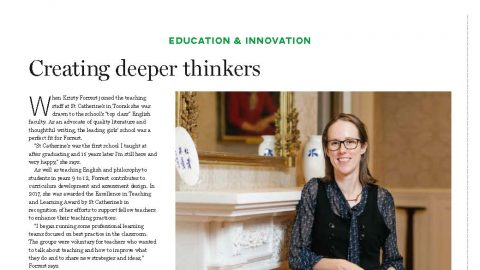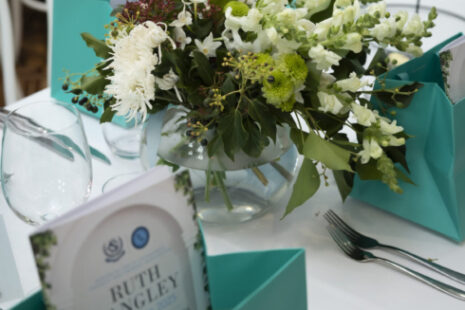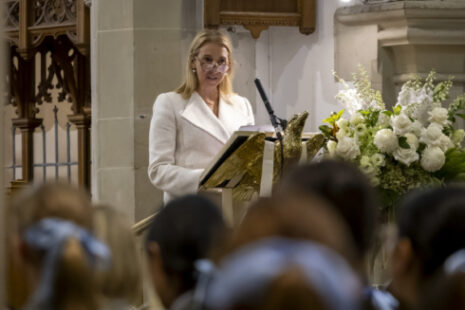Creating deeper thinkers

When Kristy Forrest joined the teaching staff at St Catherine’s in Toorak she was drawn to the school’s “top class” English faculty. As an advocate of quality literature and thoughtful writing, the leading girls’ school was a perfect fit for Forrest.
“St Catherine’s was the first school I taught at after graduating and 15 years later I’m still here and very happy,” she says.
As well as teaching English and philosophy to students in years 9 to 12, Forrest contributes to curriculum development and assessment design. In 2017, she was awarded the Excellence in Teaching and Learning Award by St Catherine’s in recognition of her efforts to support fellow teachers to enhance their teaching practices.
“I began running some professional learning teams focused on best practice in the classroom. The groups were voluntary for teachers who wanted to talk about teaching and how to improve what they do and to share new strategies and ideas,” Forrest says.
She was given a fellowship by St Catherine’s to help fund a professional certificate in clinical teaching at the University of Melbourne. She has also since completed a masters of education (pedagogy and assessment). “Clinical teaching involves taking a more diagnostic approach to teaching and looking at students in a similar way to how a doctor looks at a patient,” explains Forrest.
“It’s about looking at each student and diagnosing and adjusting strategies, rather than using the same strategies with each student. The groups with teachers during schooltime are a chance to share what is happening in their classroom, to highlight any areas of teaching they want to look at and we share strategies for staff and students. We learn from each other.”
Helping students build academic resilience and develop deep and effective thinking skills are also a focus of Forrest’s work at St Catherine’s.
“We don’t want girls to give up easily. For example, girls often retreat from difficult mathematics subjects around year 10. So how can we teach them problem-solving skills and academic resilience so they persist with difficult mathematics or difficult texts?” she says.
This year, St Catherine’s is working with academics at the University of Queensland’s Critical Thinking project to help embed a culture of effective thinking across the school.
“It places learning how to think at the core of curriculum design and teaching,” says Forrest.
“It will shift how students talk about their learning. Instead of a student saying, ‘I got this score on my English essay’ they might instead say, ‘My writing isn’t clear’. It helps them speak more meaningfully and thoughtfully about their learning and will help decision-making and problem-solving skills. At the end of the day, we want our girls to be the best possible thinkers and communicators.”
Forrest attended a girls’ school in Belgrave and says a handful of strong female teachers opened her eyes to the excitement of exploring new ideas and the power of good writing. She shares those passions with her students. “It fascinates me how teachers can influence young people’s lives. I remember some of my best teachers were those who challenged me, who were forgiving and who took their work seriously but who didn’t take themselves too seriously,” says Forrest.
“I didn’t grow up knowing I wanted to be a teacher but teaching has allowed me to continue exploring ideas and to be curious. Soon after I joined St Catherine’s I knew I’d found the right career. I’m never bored and I enjoy the academic side of teaching and the human connections you build with students.
“A good day at work for me is a mix of banter, some high-end academic work, reading some great writing from my students and sharing good moments with my colleagues.” ●





